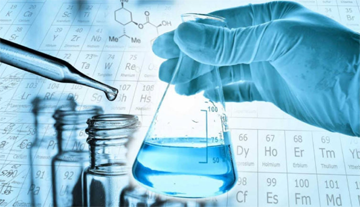Phase Transfer Catalysts

- Introduction:
We offer our customers top-notch specialty chemicals in the industries of pharmaceuticals, pigments and dyes, agrochemicals, food and cosmetics, etc. Our goal is to support the global and national economies. Our mission is to provide the chemical industry with cost-effective solutions for their needs while building long-term, strategic relationships with suppliers and clients.
- Phase transfer catalyst:
Phase transfer catalyst (PTC) is a specific application of heterogeneous catalysis that accelerates the migration of the reactant from one phase to another. It is one of the exceptional and promising approaches for the synthesis of organic molecules.
This is accomplished by solubilizing the reactant or ion in one phase and transferring it to the other phase through the action of the PTC. Phase transfer catalysts (PTCs) are compounds that facilitate the transfer of a reactant or ion between two immiscible phases, typically a polar and a nonpolar phase.
PTCs are widely used in organic synthesis, particularly in reactions that involve an ionic species such as an anion or a cation. They are useful for reactions that require the reactants to be in different phases or for reactions that require a high concentration of the ionic species in one phase.
Examples of PTCs include quaternary ammonium salts, crown ethers, and cryptands. Quaternary ammoniums salts are the most commonly used PTCs and are typically composed of a quaternary ammonium cation and a counteranion. Crown ethers and cryptands are macrocyclic compounds that form complexes with ions and can facilitate their transfer between phases.
PTCs offer several advantages in organic synthesis, including improved reaction rates, increased yields, and reduced waste. They can also enable the use of cheaper and more readily available reagents, as well as the use of milder reaction conditions.
However, PTCs also have some limitations, such as their potential toxicity and the need for careful selection and optimization of the Phase transfer catalysts (PTC) for a specific reaction. Additionally, some PTCs can lead to unwanted side reactions or product contamination.
Overall, PTCs are a valuable tool in organic synthesis and have enabled the development of many useful reactions. Their use requires careful consideration of the specific reaction and the selection and optimization of the appropriate PTC.







0 comments: